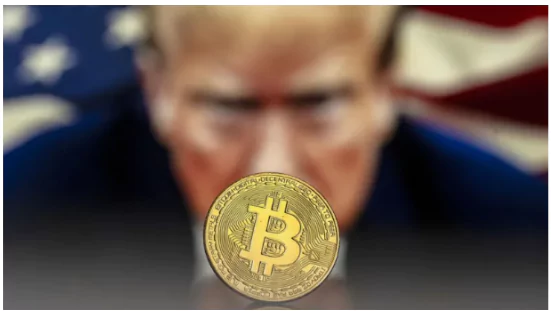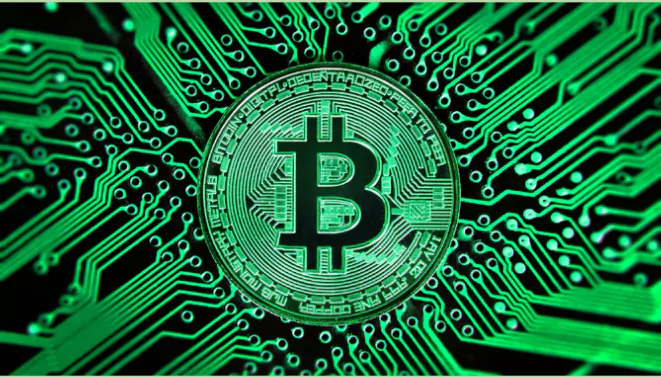US President Donald Trump has signed an executive order to create a Strategic Bitcoin Reserve, aiming to stockpile cryptocurrencies like bitcoin, ether, XRP, solana, and cardano.
What is a Strategic Reserve?

- A strategic reserve is a stockpile of vital resources kept by governments or large organisations.
- Example include the US Strategic Petroleum Reserve, which helps ensure a regular supply of oil during crises.
- These reserves act as a buffer against shortages and price volatility, ensuring national security and economic stability.
About Bitcoin Strategic Reserve
- The Bitcoin Strategic Reserve is a proposed U.S. government reserve of Bitcoin, similar to existing gold and petroleum reserves.
- It aims to enhance economic stability, hedge against inflation, and integrate digital assets into the financial system.
Source of Cryptocurrencies for the Strategic Reserve
- The reserve would primarily consist of seized cryptocurrencies from criminal activities, such as drug trafficking, money laundering, and hacking.
- The U.S. government currently holds 198,109 bitcoins (worth ~$18.1 billion) and other digital coins like ethereum and tether.
Storage and Management
- The cryptocurrencies would be held as a store of value, similar to how gold is stored in Fort Knox.
- The government would not sell these assets, at least in the short term, to avoid crashing the market.
What Are Cryptocurrencies?

- Cryptocurrencies are digital or virtual currencies that use cryptography for security.
- They operate on decentralized networks based on blockchain technology, which is a distributed ledger maintained by a network of computers (nodes).
Key Features of Cryptocurrencies
- Decentralization: Unlike traditional currencies issued by central banks, cryptocurrencies are not controlled by any single entity.
- Security: Cryptography ensures secure transactions and protects against fraud and hacking.
- Transparency: All transactions are recorded on a public ledger (blockchain), making them transparent and traceable.
- Limited Supply: Many cryptocurrencies, like Bitcoin, have a fixed supply (e.g., only 21 million bitcoins will ever exist), making them resistant to inflation.
- Global Accessibility: Cryptocurrencies can be sent and received anywhere in the world, bypassing traditional banking systems.
Popular Cryptocurrencies
- Bitcoin (BTC): The first and most well-known cryptocurrency, created in 2009 by an anonymous person or group known as Satoshi Nakamoto.
- Ethereum (ETH): A platform for smart contracts and decentralized applications (dApps), with its native currency called Ether.
- Ripple (XRP): Designed for fast and low-cost international payments, often used by banks and financial institutions.
|
Global Context
- El Salvador: El Salvador is the only country so far to adopt bitcoin as legal tender and create a crypto reserve.
- Gold Reserves Comparison: Governments like Poland, Turkey, India, and China have been stockpiling gold, driving its price to record highs. A similar trend could emerge with crypto.
|
Arguments in Favor of Strategic Bitcoin Reserve
- Diversification: Adds a new asset class (crypto) to national reserves, reducing reliance on traditional assets like gold and the dollar.
- Inflation Hedge: Bitcoin’s fixed supply (21 million coins) makes it resistant to inflation, similar to gold.
- Legitimacy: Government backing could boost mainstream adoption of cryptocurrencies.
- No Cost to Taxpayers: Using seized assets means the reserve wouldn’t require additional public funding.
Arguments Against Strategic Bitcoin Reserve
- Volatility: Cryptocurrencies are highly speculative and volatile. A market crash could wipe out the reserve’s value.
- Buying at All-Time Highs: Critics warn that purchasing bitcoin near its all-time high price ($109,000) could be a costly mistake, especially amid public sector budget cuts.
- Contradiction with Crypto’s Ethos: Bitcoin was designed to bypass government control, making a government-held reserve seem contradictory.
- Market Manipulation Risks: If more governments stockpile crypto, they could manipulate the market, similar to how they influence gold and currency markets.
- Lack of Strategic Benefit: Critics argue the reserve primarily benefits early crypto investors rather than the broader public.
![]() 10 Mar 2025
10 Mar 2025

